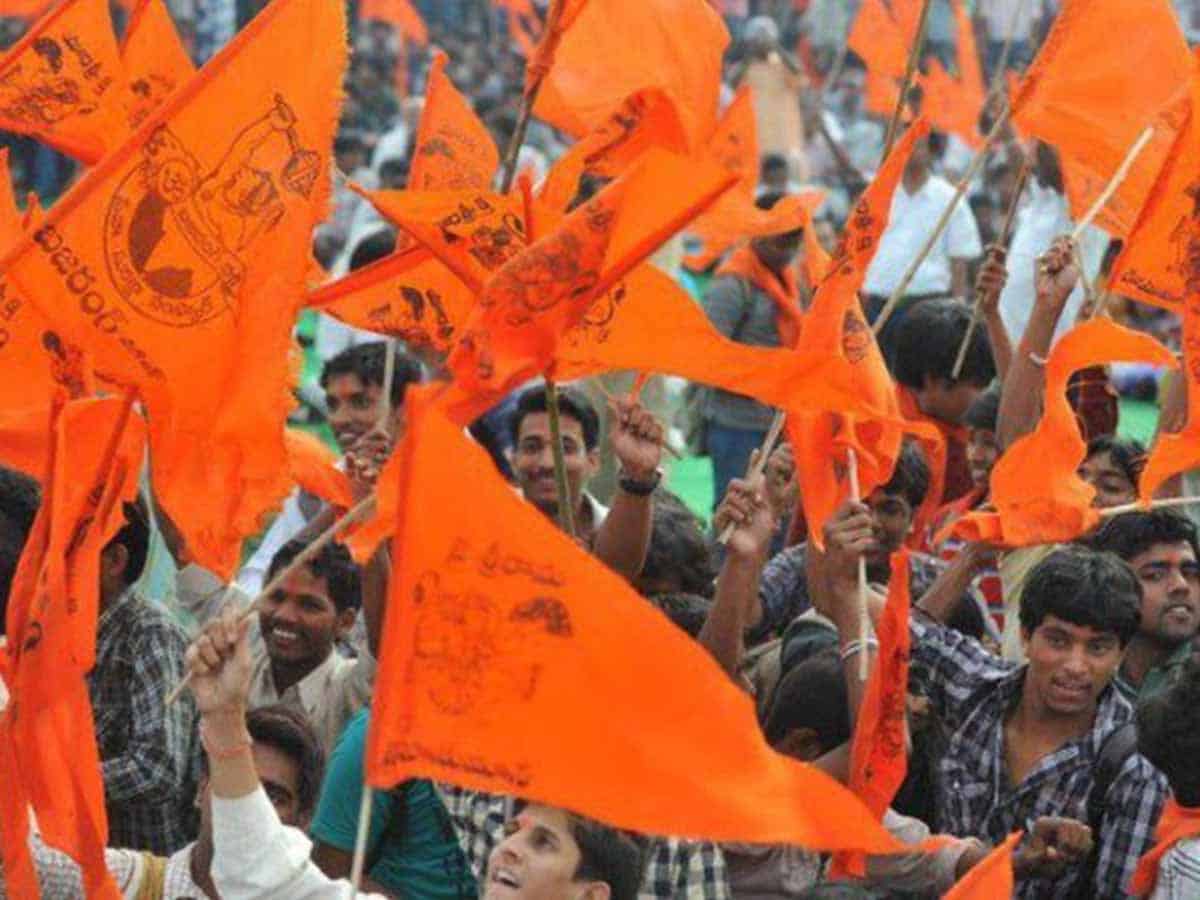Despite being qualified as a “dangerous organization” and flagged for hate speech, Facebook refrained from taking action against Hindutva nationalist organization Bajrang Dal due to political and business considerations and concern for the safety of its employees, a report by The Wall Street Journal said on Sunday.
Even though the social-media company’s safety team earlier this year concluded that Bajrang Dal supported violence against minorities, it dithered to act against the group following warnings that cracking down might endanger both the company’s business prospects and its staff in India.
The exclusive Wall Street Journal report said: “Besides risking infuriating India’s ruling Hindu nationalist politicians, banning Bajrang Dal might precipitate physical attacks against Facebook personnel or facilities.”
“Such conflicting concerns underscore the struggle Facebook faces in policing hate speech that exists in the vast sea of content posted to its platform around the world,” WSJ’s Jeff Horwitz and Newley Purnell wrote in the report, adding that the case is complicated in India—Facebook’s largest market by users.
Besides, a group of Facebook employees is known to have said in an internal letter that the presence of Bajrang Dal on its platform, among other organizations, “casts doubt on the company’s commitment to tackle hate speech in India”, the report mentions.
The Bajrang Dal is part of the Sangh Parivar, the larger family of right-wing organizations affiliated to the Rashtriya Swayamsevak Sangh (RSS). The RSS is also the ideological mentor of the ruling Bharatiya Janata Party.
“Bajrang Dal has more than 2,000 offices across India, and some of its members have undertaken violence against Christians, Muslims and secularists,” the report outlines.
Apart from Bajrang Dal, Facebook’s security team also warned against banning two other right-wing groups, Sanatan Sanstha and Sri Ram Sena, from the platform.
The journal, early in August, published a detailed report on the alleged bias of the company’s policies in favor of the ruling BJP. It reported that the company’s India’s Public Policy Director Ankhi Das opposed the idea of removing incendiary posts by BJP leaders, warning that this could hurt the company’s “commercial interests” in its biggest market, India.
Das stepped down from her position soon after.
On the other hand, the Vishwa Hindu Parishad (VHP), the mother organization of Bajrang Dal, on Monday said that it will initiate legal action against the WSJ for ‘crossing limits’ and ‘insulting India’.
VHP joint general secretary Surendra Jain, who earlier served as the in-charge of Bajrang Dal, said: “If any illegal work is being carried out in India and the government is not able to stop it, are they trying to say that the government is not competent to take action? I feel that WSJ should stay within its limits. They should not try to comment on the internal matters of India,” he said.

